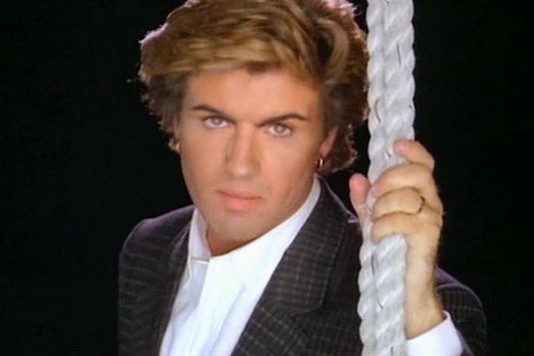

Loretta Lynn’s alcohol-soaked pity party for herself in “Somebody, Somewhere” echoes quite a lot of our newly solo Saturday nights. Dolly Parton reminds us all that wealth is a state of being, rather than the (declining) value of our bank accounts. Lucinda Williams asks the simple, but potentially life-saving question, “Are You Alright?“; Ashley Monroe comforts us, singing “someday you’ll be fine, sweet as wine” on “From Time To Time“; and Kasey Chambers gets to the core of being “Happy” regardless of the circumstances. Really, if any musical genre was perfectly suited to get us through heartbreak, loneliness, and financial hardship, it’s country. And the women of country, in particular, have plenty of lessons to impart on coping with life in chaotic times – particularly those we’re collectively facing as COVID-19 rages on.
Loretta Lynn was a ground-breaker. In her 60-year career, she was brave enough to defy strictly conservative commercial radio stations to sing about abortion, rejecting drunken advances, getting on birth control, and older women desiring younger men (and pursuing them for sexual gratification). In short, she wasn’t afraid to speak her mind – even when it came to doing housework. “Well goodbye tubs and clothes lines, goodbye pots and pans/I’m a gonna take a Greyhound bus as further as I can/I ain’t a gonna wash no windows and I ain’t a gonna scrub no floors/And when you realize I’m gone, I’m a gonna hear you roar,” she sang on “Hey Loretta,” from 1973 LP Love Is The Foundation. While I don’t recommend taking public transportation, her words may help you find your voice if you feel like you’ve been stuck at home with a mop and a stack of dishes thanks to housemates who have no inclination to help with domestic necessities.
I live by Dolly Parton’s saying, “The higher the hair, the closer to God,” which is only one of the many examples of her deep wisdom. Right now, many families in America and around the world are struggling to survive on their savings, government rations (if we’re fortunate enough to qualify) and the generosity of community organizations. It’s a good time to recall Dolly’s ode to her resourceful mother, “Coat of Many Colors.” The story behind the song is true – as a child, Dolly was taunted by her schoolmates for wearing a coat made from scraps of fabric that clearly indicated a lack of wealth in her family, but illustrated the richness of their bond: “I told ’em of the love/My momma sewed in every stitch/And I told ’em all the story/Momma told me while she sewed/And how my coat of many colors/Was worth more than all their clothes.” With many dusting off their old sewing machines to make masks for healthcare workers and neighbors alike, love becomes the thread that holds everything together.
Granted, Shania Twain was singing a love song to her man with 1999 single “You’ve Got A Way,” but some of the lyrics could equally apply to your best friendships. “You got a way with words/You get me smiling even when it hurts,” she sings. “There’s no way to measure what your love is worth/I can’t believe the way you get through to me.” When it feels like the world is in chaos, sometimes you just need understanding, and it goes both ways. We all need to be there for each other.
No one knows that better than Lucinda Williams, who just released her 14th studio album, Good Souls Better Angels. Williams knows all about hard living, sacrifice, and scraping for silver linings, and on her 2009 LP West, she opens with a simple check in: “Are you alright?/I looked around me and you were gone/Are you alright?/I feel like there must be something wrong/Are you alright?/Cos it seems like you disappeared/Are you alright?/Cos I been feeling a little scared.” If you’re like me, maybe you’ve found that the simple act of asking, as Williams did, “Are You Alright?” has even more importance now than it ever has. Every phone call to a friend, Zoom meeting with coworkers, and interaction with those on the frontline begins with this simple act of kindness.
Though “having someone to hug and kiss you” may not be an ideal way to observe social distancing, admitting that you’re not alright might enable people around you to offer you resources and advice, even if it’s just on social media. Though we must remain physically distant, we can still be socially connected.
It usually takes a lot of grief, wailing, and wondering if you can handle it before you see signs of your own granite-hard resolve to live, breathe, and become who you’re capable of being. That suffering and strengthening is illustrated beautifully in Australian country singer Kasey Chambers’ “Stronger,” from 2004 LP Wayward Angel. “I thought it was good, I thought it was fine/I thought it was just a matter of time/The sun would shine/I held my breath, I covered my eyes/Thought I was just clearing the skies,” she sings, capturing that period of waiting and watching we’re all feeling right now. Though nothing makes sense to her, she finds power within (“I’m a little bit braver/I’m a little bit wilder/I can stand a bit closer to the light”), proving that the old cliche is true – what doesn’t kill you makes you stronger.
Ashley Monroe’s bittersweet tune “From Time to Time” is another reminder that everything that threatens to break us open and bleed us of all the sweetness of who we are passes. We are loved, even when we feel horribly alone. I think of the lines “Someday you’ll be fine/Sweet as wine/It’s alright to remember” when reminiscing about going out for a meal, or visiting a record store. Those little things that nourish our soul that we miss so much? Let’s remember them and know this current level of restriction isn’t forever.
These resilient women can all attest to the power of music and creativity to make sense of pain, injustice and grief. Music is redemptive, it connects us like an invisible web that reflects the light after rainfall. Even if your singing voice isn’t going to win over record executives any time soon, you’re still capable of singing along.



